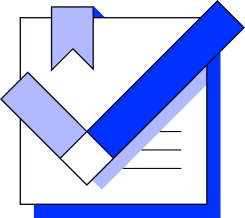
Increased Efficiency
Unearths bottlenecks to streamline workflows and improve process efficiency.

Process mining is a cutting-edge analytical discipline that utilizes data from event logs to dissect business processes and gain a thorough understanding of their operational flow. It’s a tool that sits at the intersection of data science and process management, scrutinizing event logs to discover, monitor, and enhance real-world processes. A concrete example of its application is within supply chain management, where process mining can analyze the life cycle of a product from manufacturing to delivery, uncovering bottlenecks, identifying process deviations, and providing visibility into the overall functioning of the supply chain.
Process mining offers significant benefits, revolutionizing the way businesses understand and optimize their operations.


Unearths bottlenecks to streamline workflows and improve process efficiency.

Identifies wasteful practices, helping reduce operational costs.

Monitors processes to ensure adherence to regulatory standards.

Provides clear visibility into actual processes, promoting transparency.

Tracks process performance over time for continuous improvement.

Helps in early detection of process deviations, managing operational risks.












Process mining is making waves across multiple industries due to its potential for transforming operational efficiency. In property management, it is used to track and optimize the lifecycle of rental or lease processes, enabling a more streamlined service. In tax administration, process mining aids in the comprehensive analysis of tax filing and auditing processes, helping to identify bottlenecks and ensure regulatory compliance. The hospitality sector uses it to enhance customer experience by optimizing processes like reservations, check-ins, and housekeeping. It’s also prevalent in industries like healthcare for patient journey mapping, manufacturing for production process optimization, and logistics for improving supply chain management.
















Robotic Process Automation (RPA) greatly benefits from advancements in Artificial Intelligence (AI). While RPA is excellent at following rules-based processes, AI provides the capability for RPA bots to learn, adapt, and make decisions, enhancing their functionality. AI-powered cognitive capabilities like Natural Language Processing (NLP), Machine Learning (ML), and Computer Vision enable bots to understand and respond to text or voice commands, learn from historical data, and recognize images, respectively. For instance, in customer service, AI-powered RPA can analyze customer sentiments in real-time, allowing bots to handle customer complaints and queries more effectively, delivering personalized responses and improving overall customer experience.